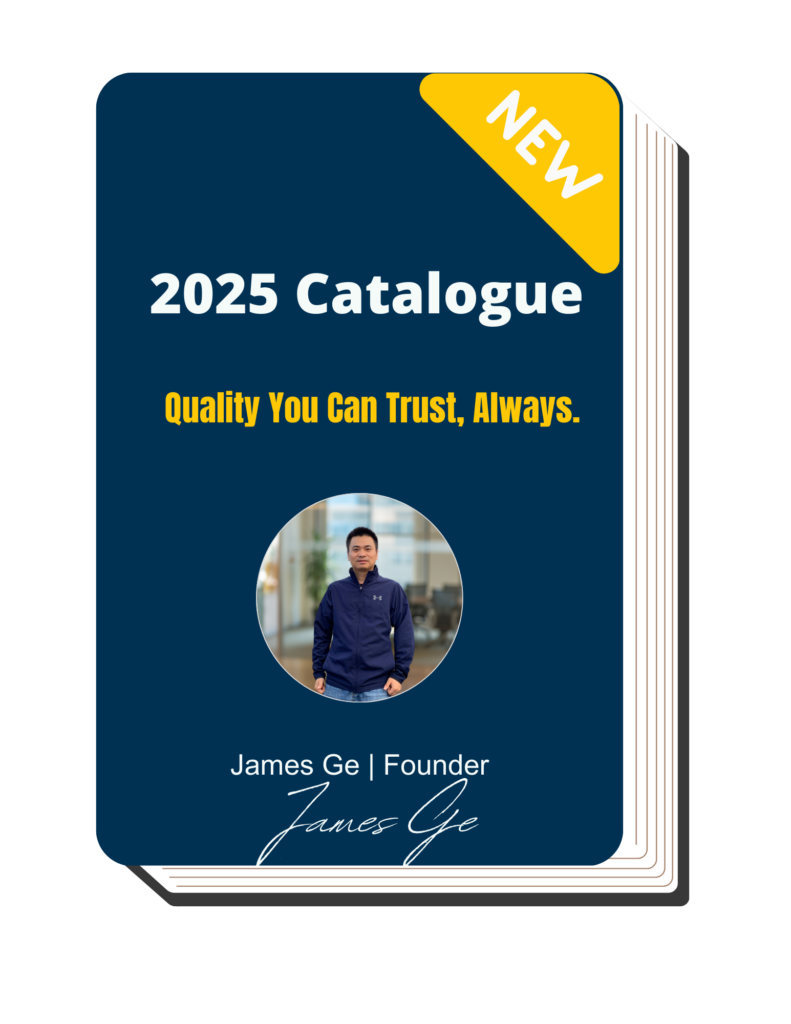I remember walking through a logistics yard years ago, staring at rows of parked trailers. Some were in decent shape. Others? Rusted frames, cracked axles, worn-out tires.
The owner pulled me aside and said “Half of these are from a supplier I’ll never use again.”
That stuck with me.
If you’re in charge of buying trailers whether for mining, construction, food transport, or general freight you’ve probably had that same fear: What if the manufacturer cuts corners? What if the trailers don’t last?
This article is for you, the decision-maker who can’t afford to guess. You’ll get a clear, honest look at 7 semi trailer manufacturers worth knowing. I’ll walk you through their story, what they build, how they work, and why they might (or might not) be the right fit for your operation.
Let’s start!
Quick Comparison
Here’s a quick comparison to help you spot strengths, specialties, and standout facts. We’ll go deeper in the next sections:
| Manufacturer | Country | Founded | Trailer Types Offered | Best For |
| CIMC Vehicles | China | 1996 | Flatbed, container chassis, tank, reefer, van, dump | Large-scale logistics, global distribution |
| Wabash National | USA | 1985 | Dry van, reefer, platform, tank, intermodal | North American fleets, general freight |
| Rhinotrail | China | 2012 | Flatbed, low-bed, container, dump, tank, reefer | Custom trailer buyers, export-focused users |
| Great Dane | USA | 1900 | Dry van, reefer, flatbed, truck bodies | Long-term reliability, food and retail logistics |
| Schmitz Cargobull | Germany | 1892 | Box, curtainsider, tipper, reefer, chassis | Cross-border EU transport, smart trailer users |
| Hyundai Translead | USA (MX plant) | 1989 | Dry van, reefer, flatbed, chassis, dollies | North American carriers, retail and e-commerce |
| Krone | Germany | 1906 | Curtainsider, reefer, box, dry van, container chassis | European haulers, cargo visibility and flexibility |
You’ve seen the surface. Now let’s dig into the experience, the products, and the little things that make each manufacturer stand out.
1. CIMC Vehicles
When I started sourcing trailers for a project overseas, I kept hearing the name CIMC. At first, I thought it was just another big player with a polished website. But after speaking with two importers who had been using their trailers for over five years, I realized there was more behind the name.
So I decided to dig in.
What makes CIMC Vehicles one of the top semi trailer manufacturers in the world? Here’s what I found.
CIMC Vehicles was founded in 1996 in Shenzhen, China. It employs more than 10,000 people globally.
What sets CIMC apart is its reach.
The company has manufacturing plants not just in China but also across North America and Europe. This global footprint helps them stay close to their customers and respond to different market needs quickly.
They’re part of the larger CIMC Group, which specializes in logistics equipment. That background gives them the experience to support multiple industries, from mining and construction to logistics and agriculture.
Manufacturing Story
Before we talk about their trailers, let’s take a quick look at how they grew.
CIMC started producing and selling trailers around 2002. By 2013, they became the top-selling semi trailer brand worldwide. That title isn’t just based on sales, it reflects how many companies rely on them to keep their fleets moving.
Over the years, they’ve added R&D centers, upgraded their production equipment, and expanded into local markets using a strategy they call “intercontinental operation, local manufacturing.” In short, they build where their customers are.
Product Focus
Wondering if CIMC has the type of trailer you need?
Here’s what they offer:
- Flatbed trailers
- Container chassis
- Tank trailers
- Refrigerated trailers
- Van trailers
- Dump trailers
These cover a wide range of industries. If you’re in logistics, agriculture, or construction, chances are they have a trailer that fits your daily operations.
What Makes Their Trailers Work
Of course, offering products is one thing. Building trailers that actually hold up under stress is another.
Here’s what stood out to me:
- Design and engineering: Their trailers are built to be durable and functional.
- Safety features: They follow international standards for braking systems, lighting, and stability.
- Load specs: You’ll find options for different weight classes, depending on your haul.
- Terrain adaptability: Whether you’re running on highways or rougher ground, CIMC trailers are built to stay steady.
Connect with Them
Ready to reach out or learn more?
Here’s how to get in touch:
- Phone: +86 755-2680-2955
- Address: CIMC R&D Center, No. 2 Gangwan Avenue, Shekou Industrial Zone, Nanshan, Shenzhen, Guangdong, China
If you’re a dealer or distributor, they also offer partnership opportunities.
Final Thoughts
So, is CIMC right for you?
If you’re looking for a manufacturer with broad product coverage, a strong global network, and a track record of growth, CIMC is worth considering.
That said, they’re a large company. If you’re a smaller buyer or looking for deep customization, you might want to ask how they handle small orders or one-on-one support.
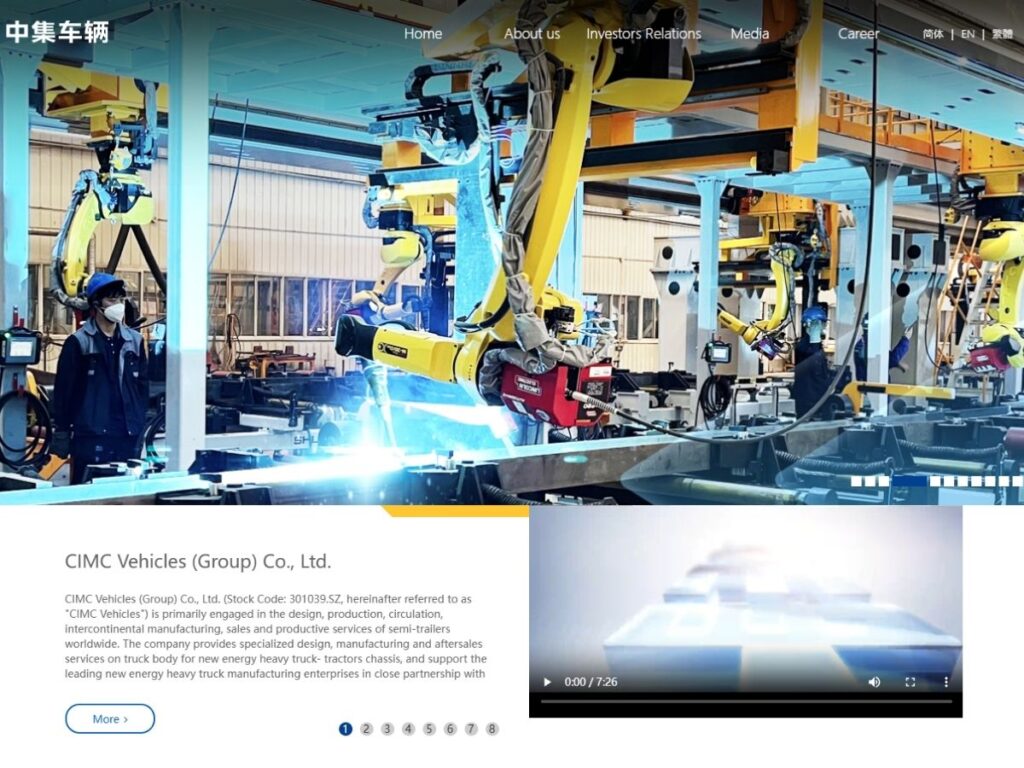
2. Wabash National
I once sat across from a fleet manager at a logistics roundtable. He leaned in and said, “Our trailers were always the weakest link, until we tried Wabash.” That comment stayed with me.
If you’ve dealt with downtime, unexpected breakdowns, or poor after-sales support, you understand why choosing the right manufacturer matters.
Wabash National was founded in 1985 and is based in Lafayette, Indiana. Today, they employ around 6,500 people across North America.
Their facilities stretch across multiple U.S. states, along with operations in Mexico. This kind of reach makes it easier for them to support large fleets and maintain steady production.
You might ask: do they only build trailers? The answer is no. Over time, Wabash expanded into truck bodies, tank systems, and intermodal equipment. This tells you they’re not standing still. They grow where demand grows.
Manufacturing Story
Understanding where a manufacturer came from can help you see where they’re headed.
Wabash started with a focus on dry van trailers. But by 2012, they acquired Walker Group Holdings, expanding into tanks. In 2017, they added Supreme Industries to boost their presence in truck bodies.
These steps show something important: Wabash responds to market needs by building from within and acquiring strategically. It’s one way they’ve stayed competitive across different segments.
Product Focus
Now let’s look at what they actually build. Their core trailer categories include:
- Dry freight vans
- Refrigerated vans, also known as reefers
- Platform trailers
- Liquid tank trailers
- Intermodal chassis
Whether you move food, steel, liquids, or mixed freight, there’s likely a Wabash model built for your operation.
What Makes Their Trailers Work
At this point, you might be wondering: what makes Wabash trailers worth considering?
Here are some key factors:
- Materials: They use composites and lightweight metals to reduce fuel use without losing strength
- Safety systems: Their braking and lighting setups meet industry standards
- Modular design: Some units are built to adapt to different load sizes and types
- Field performance: Fleet operators report fewer maintenance issues over time
Connect with Them
If you’re thinking about reaching out:
- Address: 3900 McCarty Lane, Lafayette, IN 47905
They use an online contact form to route inquiries to the right team. It’s worth filling out if you have specific product questions or fleet needs.
Final Thoughts
Is Wabash right for you?
If you run a mid-size to large operation and need trailer variety under one roof, they’re worth a look. Their growth reflects a company that adapts well. They serve food, freight, construction, and more.
But if you’re a small business with a tight budget or need deep personalization, ask how they handle lower-volume accounts. Some smaller buyers say it’s harder to get quick answers.
Still, for durability, range, and scale, Wabash offers a lot. And that alone can make your job easier.
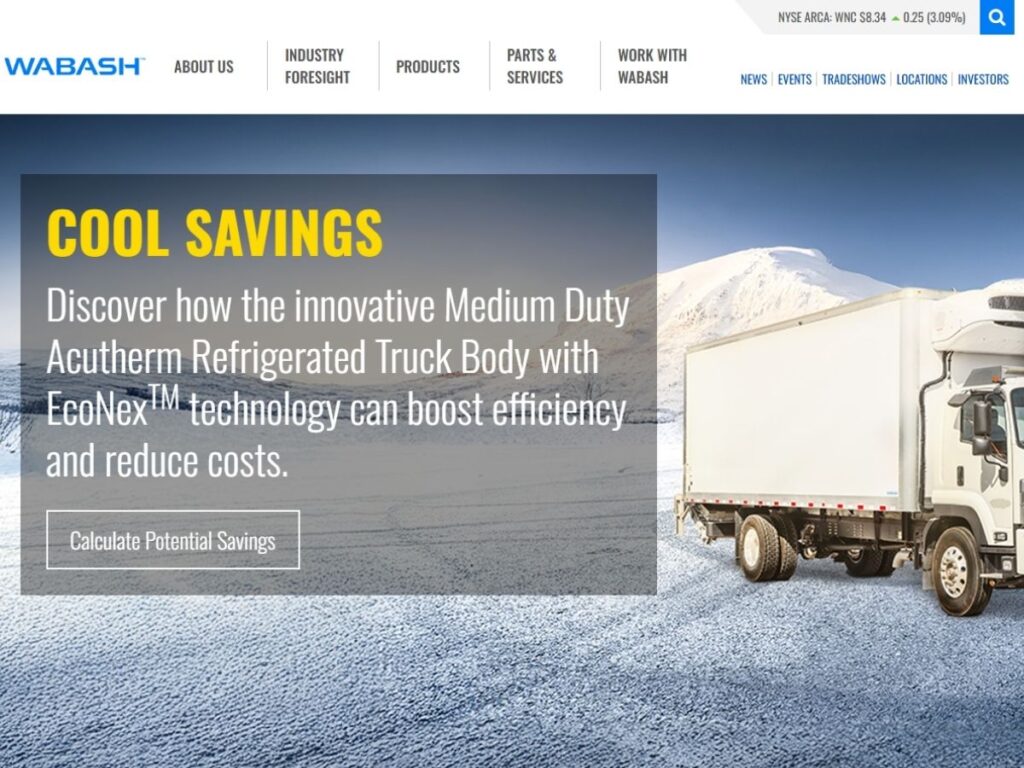
3. Rhinotrail
If you’re looking for a semi-trailer that meets real-world demands instead of just what’s listed in a catalog, Rhinotrail is worth a closer look.
Rhinotrail is based in Liangshan County, Shandong Province, China. The company has more than 12 years of experience in manufacturing semi-trailers.
The name combines “rhino” and “trailer.” Once you see their builds, it makes sense. Their trailers focus on strength, dependability, and long-term use under real pressure.
What sets them apart is their flexibility. They don’t just build one or two types of trailers, they build for different industries and different countries, all with their own rules and challenges.
Manufacturing Story
To understand Rhinotrail’s strengths, you need to know where they started.
In the early years, they took on smaller orders. Many were built to meet country-specific standards. That meant learning how to adapt quickly. Over time, they expanded their workshop, added new production lines, and started shipping to more countries.
Today, Rhinotrail produces a full range of semi-trailers. Their team works directly with business buyers to match the load requirements and road conditions for each region.
If you’re exporting trailers to Africa, Southeast Asia, or South America, their experience with international specs can save you time and trouble.
Product Focus
Rhinotrail offers a wide range of trailer types. Their current lineup includes:
- Container chassis
- Flatbed trailers
- Dump trailers
- Tanker trailers
- Refrigerated trailers
- Low-bed trailers
- Fence and utility trailers
You may be wondering: do they focus on one industry? The answer is no. Their trailers are used across logistics, mining, agriculture, food transport, and even energy and construction.
That range gives you more options, especially if you’re managing different types of cargo.
What Makes Their Trailers Work
When I visited a site in East Africa, I watched a Rhinotrail low-bed trailer carry a 50-ton excavator over uneven ground. It made the trip more than once. The driver said, “Still running strong. Never had to weld the frame.”
That kind of performance says a lot.
Here’s what makes their trailers stand out:
- Strong steel framing that handles heavy-duty use
- Adjustable designs built to meet country-specific road laws
- Branded axle and brake systems used in every trailer
- Load capacity options depending on your cargo and terrain
If you’re moving fuel, livestock, steel, or food, Rhinotrail builds with those uses in mind.
Connect with Them
If you’re thinking of reaching out, here’s how to start:
- Address: Quanpu Town Industrial Park, Liangshan County, Jining City, Shandong Province, China
They’re responsive through email and WeChat. Many buyers begin by asking for sample specs or previous customer references.
Final Thoughts
Rhinotrail is a solid choice if you need a trailer that fits your exact use case.
They’re not a massive corporation, and that’s often a benefit. You get faster answers, more flexibility, and direct support. If you’re dealing with import laws, rough roads, or specific axle spacing rules, you need a manufacturer who will work with you, not just sell to you.
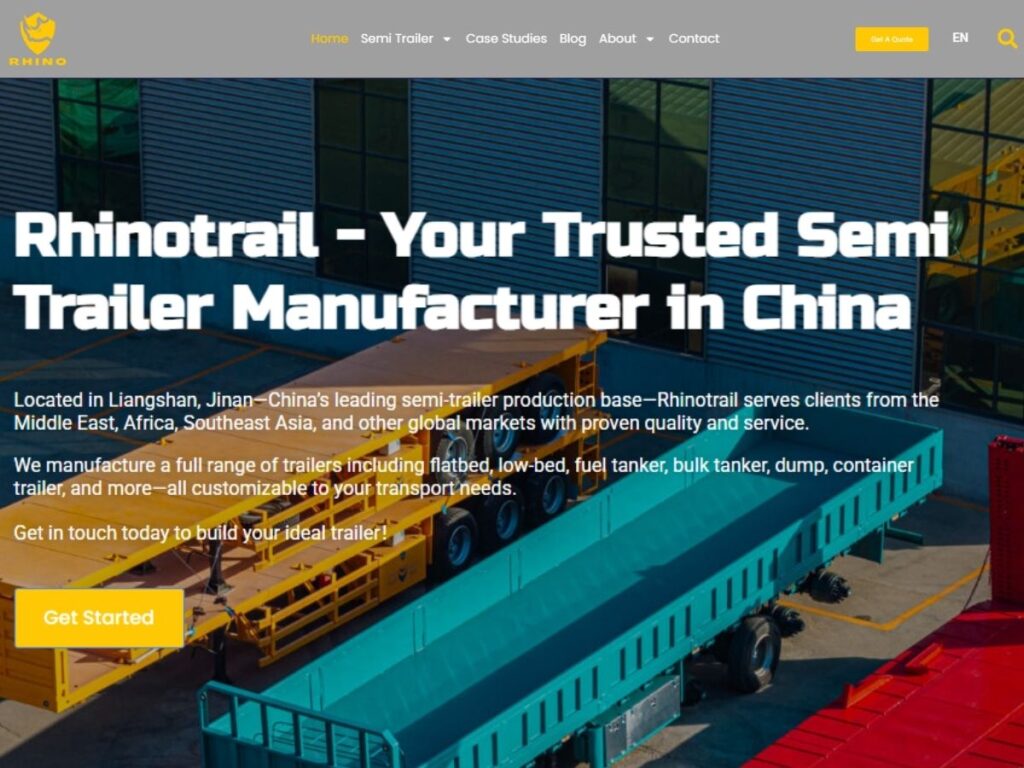
4. Great Dane
At a freight expo in Georgia, I overheard a driver say, “If I had my pick, I’d go Great Dane. Their trailers feel like they were built for the long haul.”
That kind of statement says more than specs ever could. It’s why I took a closer look.
So what makes Great Dane one of the top names in the trailer space?
Let’s start with their roots.
Great Dane began in 1900, originally named Savannah Blow Pipe Company. Today, they’re headquartered in Chicago, with production plants in Indiana, Georgia, and Pennsylvania.
That means they’ve been building transport equipment for well over a century. Few manufacturers in this space can say that.
Their long history tells you something important: they’ve survived every economic cycle by staying useful to customers. If you value stability and experience, that’s a strong starting point.
Manufacturing Story
How did they go from blow pipes to building reefers?
In the 1930s, they shifted into flatbed trailers. By 1947, they added refrigerated models. In the 1950s, they began offering aluminum van trailers to cut weight and improve fuel savings.
Every decade, they’ve found a way to improve or add something that helped businesses move more efficiently.
Product Focus
Let’s break down what they offer now:
- Dry freight trailers
- Refrigerated trailers, often called reefers
- Flatbeds
- Truck bodies for local and regional delivery
Whether you’re in food, building materials, or retail distribution, Great Dane likely has a product that fits.
What Makes Their Trailers Work
It’s not just their history that matters. It’s how they design for today’s roads.
- Frame and material strength: They use aluminum and other rust-resistant components
- Reliable safety systems: Lighting and brakes meet strict U.S. transportation standards
- Trailer lifespan: Many users report 10 years or more of daily service with minimal major repairs
- Service network: They’ve built a network of service points across North America
Connect with Them
Want to reach out?
- Address: 222 N LaSalle St, Chicago, IL 60601
You can find dealers and service centers on their site, sorted by location.
Final Thoughts
Great Dane is a solid pick for operators who want trailers that work without the guesswork.
They don’t chase trends. Instead, they focus on delivering equipment that performs, lasts, and stays reliable across miles and years.
If you’re new to trailer buying, their long track record can give you peace of mind. And if you’ve been in this space for years, you probably already know someone who swears by them.
Either way, they deserve a spot on your shortlist.
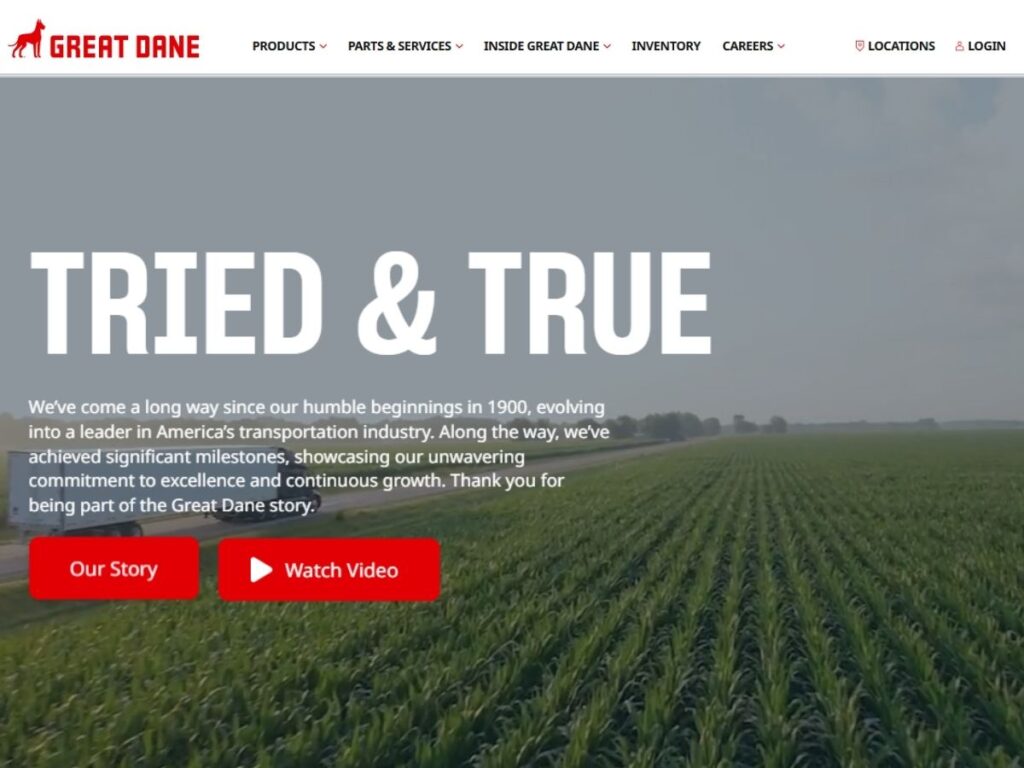
5. Schmitz Cargobull
If you’re searching for a European trailer maker with deep experience and precision-built models, Schmitz Cargobull is one to know.
Schmitz Cargobull began operations in 1892 and is based in Horstmar, Germany. The company now employs more than 6,900 people and is considered one of the largest trailer manufacturers in Europe.
They operate production sites in several countries, including Germany, Spain, Lithuania, and Russia. That wide footprint helps them support multiple logistics hubs across the continent.
You may have seen their logo before: a blue elephant. It represents strength and endurance, two traits that reflect how their trailers are built and used in the field.
Manufacturing Story
Looking at their timeline helps you understand why Schmitz trailers have such a strong reputation.
In 1950, they built their first insulated and refrigerated bodies. By the 1990s, they had rebranded as Schmitz Cargobull and expanded their focus to meet modern transportation needs.
One key move was creating their own refrigeration unit. That meant customers could buy a full trailer package without relying on third-party cooling systems. It’s the kind of in-house innovation that makes a difference on the road.
Product Focus
Schmitz Cargobull builds different types of semi-trailers, depending on what your business hauls.
Here’s a quick breakdown of their main categories:
- Box semi-trailers for both dry freight and refrigerated goods
- Curtainsider trailers for general cargo like pallets, steel, and beverages
- Tipper trailers for bulk construction materials
- Container chassis for port and intermodal transport
Do you move across borders with temperature-sensitive goods or oversized loads? Schmitz likely has a trailer that fits your route and cargo type.
What Makes Their Trailers Work
What sets their equipment apart?
Several things caught my attention when speaking with logistics teams that use Schmitz:
- Their aerodynamic design improves fuel efficiency over long hauls
- High-strength steel components reduce wear and extend trailer life
- Integrated telematics provide real-time data on trailer location, condition, and load security
- Their repair network spans over 1,200 certified workshops in Europe
I once spoke with a dispatcher who said, “Before Schmitz, we were guessing at breakdowns. Now we get alerts before problems hit.” That kind of insight can save you both money and time.
Connect with Them
If you’re interested in seeing how Schmitz Cargobull might fit into your fleet:
- Address: Bahnhofstraße 22, 48612 Horstmar, Germany
Their site includes product specs, service information, and dealer locators by region.
Final Thoughts
Schmitz Cargobull may be one of the oldest trailer manufacturers in the business, but they continue to push forward with new ideas and solid customer support.
If you’re managing long hauls in Europe or need a reliable refrigerated solution, they deserve serious consideration. Their trailers are designed to reduce guesswork, improve uptime, and support your operations where it counts.
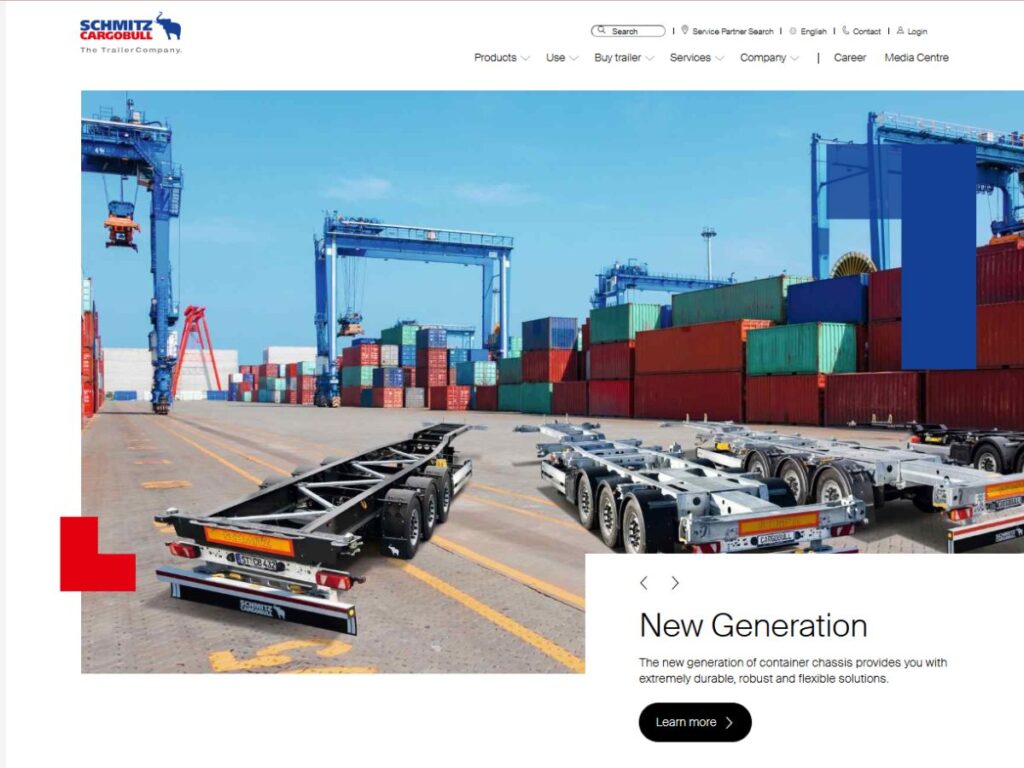
6. Hyundai Translead
If you’re looking for a trailer builder focused on the North American market, Hyundai Translead offers solid options backed by global expertise.
Hyundai Translead was founded in 1989. It is a subsidiary of Hyundai Motor Company and is headquartered in San Diego, California.
They build their trailers in Tijuana, Mexico, which gives them an edge in speed and cost control when supplying U.S. and Canadian fleets.
What surprised me is just how much they’ve grown. Today, they’re one of the leading manufacturers of dry vans, refrigerated trailers, and chassis in North America.
Manufacturing Story
One thing I always look at is how a company handles quality. Hyundai Translead was the first trailer manufacturer in North America to earn ISO:9001 certification back in 1996.
That tells you they take systems and processes seriously, and they’ve done so for decades.
Their Innovation Lab, or iLab, was built to support in-house research and product testing. From what I’ve seen, it allows them to keep improving their materials, aerodynamics, and trailer strength.
Product Focus
Let’s break down what Hyundai Translead actually makes:
- Dry van trailers for general freight
- Refrigerated vans for food and temperature-controlled goods
- Flatbeds for oversized cargo
- Container chassis for intermodal shipping
- Trailer dollies used to link trailers together
These options make their lineup suitable for logistics, retail, food distribution, and more.
What Makes Their Trailers Work
I’ve had conversations with operators who rely on Hyundai Translead trailers daily. Here’s what I hear most:
- Strong aluminum and steel builds that hold up well over time
- Smart airflow designs to reduce drag and fuel use
- Flexible specs for different regional and customer needs
- Consistent quality across production batches
Connect with Them
Want to learn more or speak with a rep?
- Address: 8880 Rio San Diego Drive, Suite 600, San Diego, California 92108
They have dealer and service center listings available through their site as well.
Final Thoughts
Hyundai Translead builds trailers with longevity and practicality in mind. They may not be the flashiest brand on the market, but they focus on what matters most: strong builds, smart design, and dependable performance.
If you’re operating across North America and want trailers that do their job quietly and consistently, they’re a smart pick to explore.
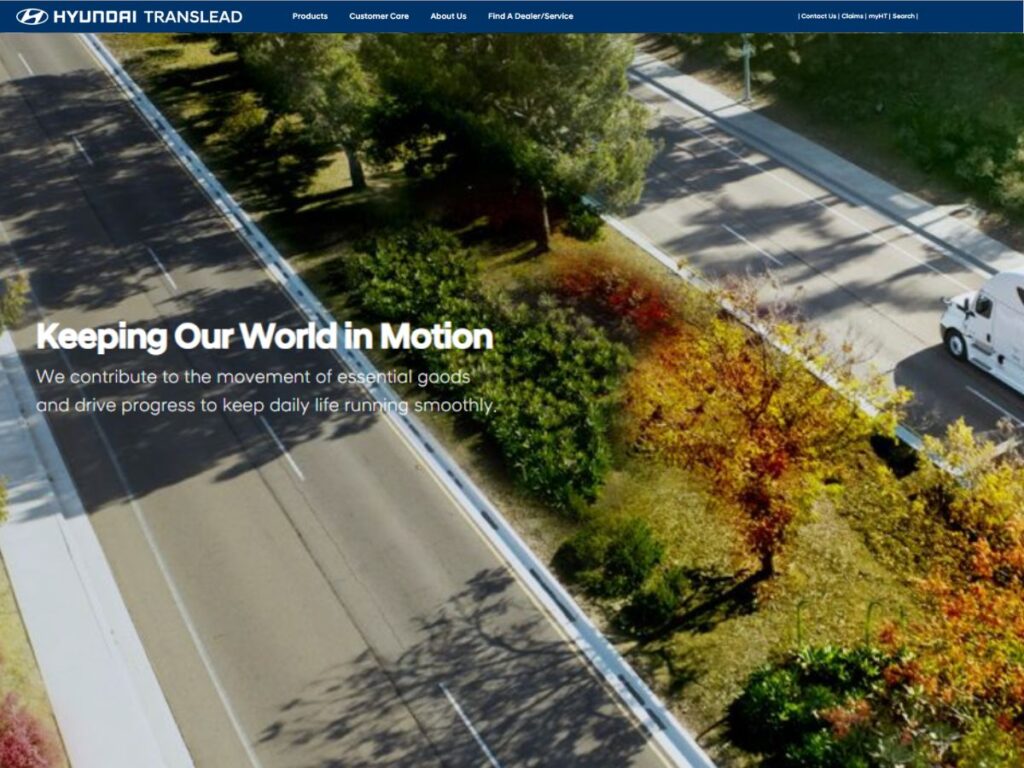
7. Krone
If you’re running international freight, food transport, or regional delivery, Krone is a name you’ve probably heard. But what makes them different from the rest?
Krone was founded in 1906 in Spelle, Germany. What began as a small blacksmith shop has grown into one of Europe’s most respected trailer manufacturers.
Today, Krone is still a family-owned business, now in its fourth generation. They operate facilities in Germany and Turkey. The main production center in Werlte, Germany, is known for its automation and efficiency. They’ve also invested in a second site in Tire, Turkey, to better serve nearby regions.
You might be wondering: how does a company stay relevant for over a century? The answer lies in how they’ve handled change.
Manufacturing Story
Krone didn’t become a major name overnight. They made slow, steady moves that reflected what customers actually needed.
In 1963, they opened a dedicated trailer plant in Werlte. Later, in 2012, they added the Turkey facility. And recently, they upgraded their Lübtheen plant, calling it one of the most advanced trailer production sites in Europe.
This kind of investment shows a pattern. Instead of expanding too fast, they’ve focused on building smarter.
One engineer I met during a plant tour told me, “Every time Krone adds something, it’s because a customer asked for it.”
That’s the kind of approach that earns long-term trust.
Product Focus
Krone’s lineup is designed to cover a wide range of industries. Whether you haul produce, steel, packaged goods, or containers, they’ve got a solution.
Here’s a breakdown of their main trailer categories:
- Profi Liner: A flexible platform trailer for general cargo
- Mega Liner: Built for high-volume loads with extra interior height
- Cool Liner: A refrigerated unit for temperature-sensitive freight
- Dry Liner: A box trailer for secure, dry transport
- Box Liner: A chassis model for container transport
Each trailer is built with a specific job in mind. If you’ve struggled to find a good fit for a particular cargo type, Krone might already have a design for it.
What Makes Their Trailers Work
Now let’s get into what makes these trailers perform well on the road.
Here are the top features that stand out:
- Aerodynamic design: Shaped to reduce fuel use across long hauls
- Anti-corrosion coating: They use cathodic dip and powder coating to resist rust
- High-strength steel: Keeps the trailer frame solid under heavy loads
- Built-in telematics: Lets you monitor trailer location and health in real time
Telematics is worth defining if it’s new to you. It’s a system that uses sensors and GPS to track things like trailer speed, tire pressure, and refrigeration status. That kind of data helps you prevent breakdowns and plan smarter routes.
One fleet manager told me, “Krone’s tracking system cut our repair costs in half. We don’t wait for problems to show up, we catch them early.”
That kind of insight can save both money and cargo.
Connect with Them
Interested in learning more?
- Contact form: Krone contact page
Their site offers detailed specs, dealer locations, and help with exports or regional regulations.
Final Thoughts
Krone doesn’t build for show. They build for real use. Their trailers aren’t flashy, but they hold up under pressure, and they solve problems before they become headaches.
If you’re running large fleets or managing temperature-sensitive goods across Europe or beyond, Krone is a name you can rely on. They’ve lasted this long for a reason and it usually starts with a solid frame and a helpful conversation.
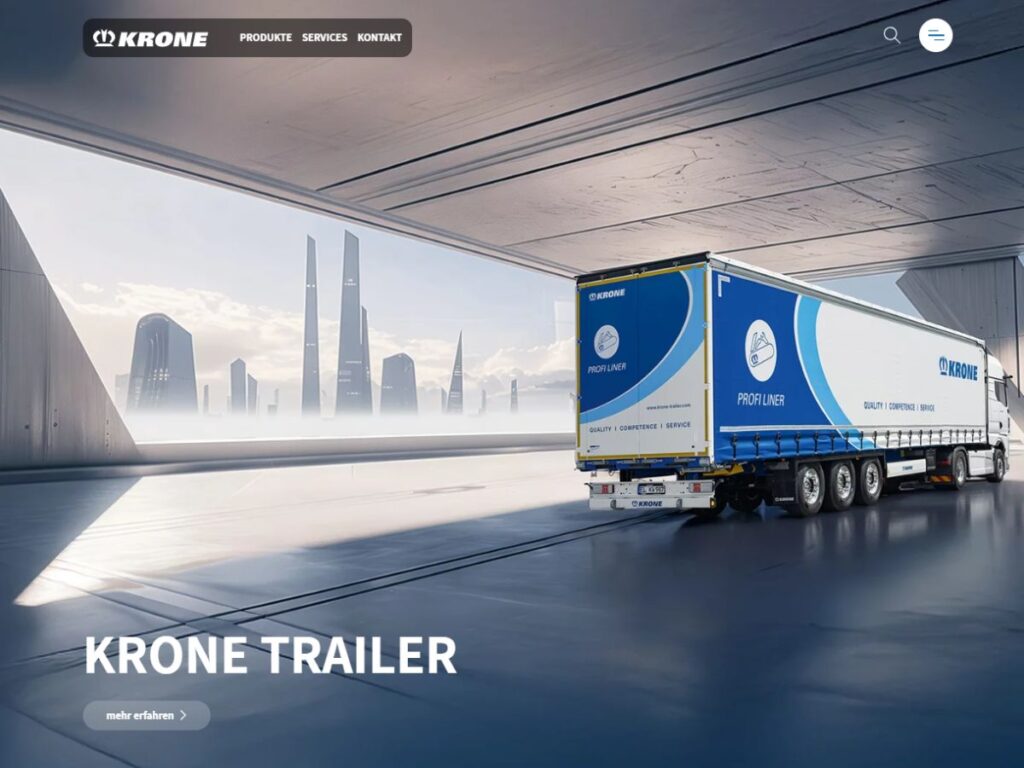
Conclusion
When I started my search for a reliable trailer, I didn’t know where to look. The options were overwhelming. But once I began comparing real companies, asking real questions, things got clearer.
This guide gave you the what, who, and how. 7 manufacturers with different strengths. All with something to offer.
You know what you need. And now, you know where to start.
So, what’s stopping you?
What kind of trailer will drive your business forward?
Contact us today. Let’s help you find the right fit.

